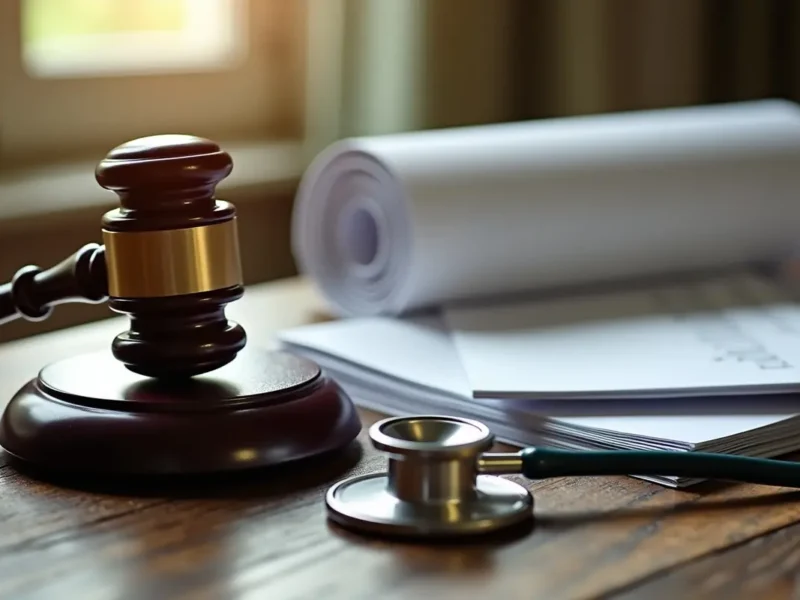Property and business owners have a legal duty to keep their facilities in a safe condition. Their premises need to be secure for those who visit, patronize, or work at their business. Failing to perform regular maintenance or fix hazards could result in someone being injured.
Unfortunately, not all business owners proactively take care of their property. Accidents can occur due to negligence. You have a legal right to pursue compensation with the help of someone like https://www.warforindy.com/indianapolis-premises-liability-lawyer if you or a loved one have been injured on the business’s property.
It can be overwhelming to know where to start if you find yourself in this scenario. This guide will discuss how you can legally pursue your rights after an accident on company property. Partner with an experienced lawyer to fight on your behalf, whether you’re an employee or customer.
Contents
What Is Premises Liability?
Premises liability is an essential aspect of any legal case you might pursue after an injury at a business. To win this type of case, you have to prove the following:
- The property or business owner was negligent
- They failed to maintain the property or display safety hazard signs
- They didn’t use reasonable care for their property
Keep in mind that just because you got injured at a property doesn’t mean the business owner was negligent. Additionally, even if the property was in an unsafe condition doesn’t automatically mean that the business owner was negligent. The main thing you have to prove is that the property owner knew their premises were unsafe and didn’t take the proper actions to fix the situation.
For example, say you slipped and fell on an unattended spill at a casino in Reno and broke your ankle. A hotel casino accident lawyer in Reno will determine if the property owner was aware of the spill. They’d have to gather evidence that proves they failed to take care of the spill if they knew it was there.
Different Types of Premises Liability Legal Cases
Various personal injury cases might fall under the premises liability umbrella. These cases can include:
- Ice and snow accidents
- Fall and slip cases
- Subpar property maintenance
- Inadequate security that resulted in assault or injury
- Defective property conditions
- Dog bites
- Accidents in a swimming pool
- Escalator or elevator accidents
- Amusement park injuries
It might surprise you to see dog bites on this list. They’re included in premises liability because the presence of a dangerous dog on the property results in it being unsafe.
What’s the Duty of Care?
Many states have laws stating that the property or business owner needs to perform reasonable care in ownership and property maintenance. These specific rules apply to anyone that might go into their property.
However, other states have old regulations that limit the property owner’s duties. These limitations apply to the visitor’s status. The categories of visitors include:
- Licensees: Invited on the property but is there for their purposes (i.e. salespeople)
- Trespassers: Not authorized to be on the property, unless it’s a child
- Invitees: Friends or family invited onto the property
A property owner owes a licensee less duty than they would an invitee. They owe a trespasser no duty of care.
These rules can get complicated. An experienced premises liability lawyer can guide you through the process.
What You Can Do Legally After an Accident
Businesses are required to have liability insurance policies. They’re designed to protect business owners from various injury claims. However, their insurance company doesn’t automatically pay you if you’ve been injured on their property.
Your claim could get denied even if they have a general or premises liability insurance policy. You have to prove that you were actually on their property. You’ll also need to show that the owner is at fault for your injuries.
As we mentioned earlier, why you were on the property makes a huge difference. One thing to consider is if you were invited to the property. There are two types of invitations:
- Implied
- Express
An implied invitation is for those who walk into a business off of the street. They could also visit a company because they’re aware of it and are coming in for an appointment or to eat.
An express invitation is a personal invitation to a special event. It could also be an invitation through advertising on television, radio, or billboards.
Companies that have both licensees and invitees include:
- Nightclubs and bars
- Grocery stores
- Gas stations
- Hotels
- Gyms
Ways to Prove the Business Was to Blame
Even if you were invited to the property or had a valid reason to go there, you’ll still need to prove that they’re at fault for your injuries. Your lawyer will need to gather evidence to prove that your injuries were severe. They’ll also have to show the negligence of the business.
Get Medical Treatment
Seek medical attention immediately following an accident at a business. Don’t diminish your symptoms or blame your fall on being clumsy. Failing to get medical treatment after an accident could delay your treatment and affect the outcome of your cast.
Request an Incident Report
Ask the manager or business owner to write an incident report. Ask them for a copy. Your attorney might have to subpoena the business if they can’t release the incident report to you.
Gather Witness Statements
Get first-hand accounts from anyone who witnesses your accident. Request their contact information and name from them.
Ask them to write down everything that they saw. Your attorney might want them to make a signed statement.
Take Videos and Photos of the Scene
If you’re unable to take photos and videos of the accident scene, ask someone else to. Focus on the areas that caused your accident and injury. Some examples could include:
- Merchandise that fell over on you
- Water on the floor
Any evidence of the dangerous conditions that caused your accident is key to proving your case.
You deserve to seek compensation if you or a loved one has been injured at a business. Gathering as much evidence as possible right after your accident will help you build a strong case. Schedule a consultation with an experienced attorney as soon as you can to receive tailored advice.



